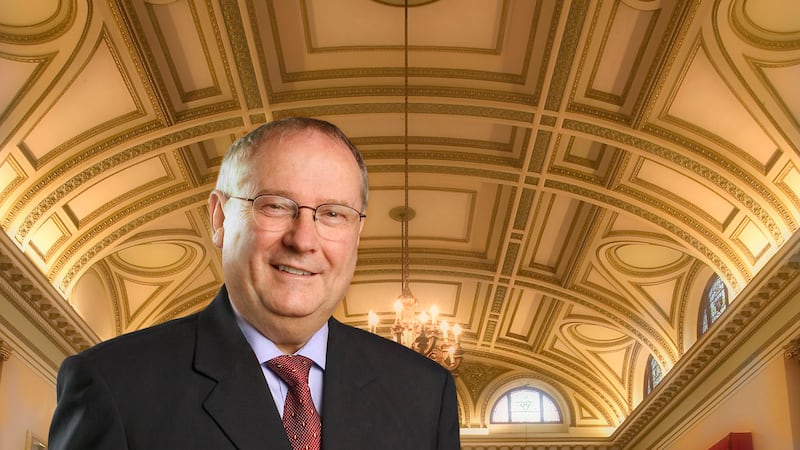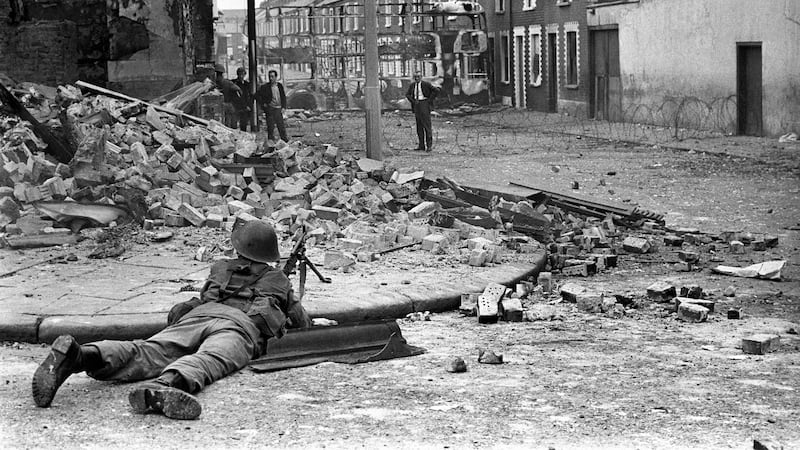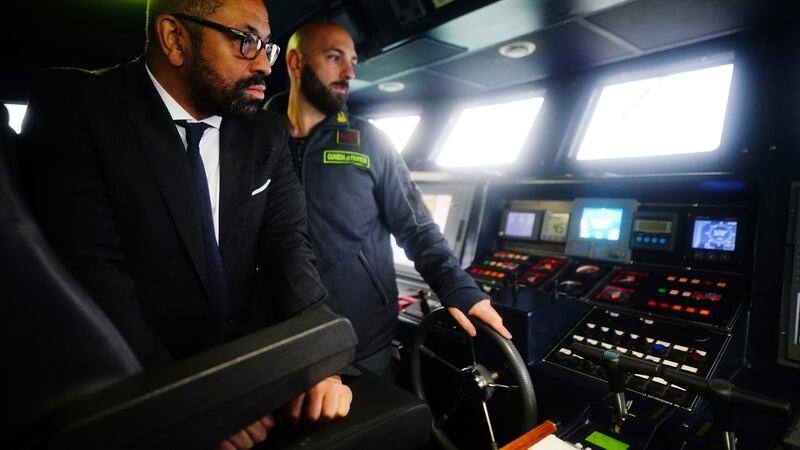FRANK Cushnahan is one of a very small number of people who could unlock the full story behind the sale of Nama's Northern Irish assets.
Cushnahan, a banker turned corporate financial and management consultant, first came to the attentions of the First Minister and Sammy Wilson, a fellow DUP minister, when he put together an informal report on the Northern Ireland economy.
Peter Robinson was said to have been impressed with Cushnahan's vision and obvious talent for crunching numbers.
He was appointed as a director of the Office of the First and Deputy First Minister in Northern Ireland in 2006.
Before he stepped down from this position, Sammy Wilson, in his capacity as Finance Minister, had already begun to lobby the late Brian Lenihan, Ireland's Finance Minister at the time, to appoint Cushnahan to the Nama Northern Ireland Advisory Committee (see picture on left).
The DUP ministers valued Cushnahan's opinion enough to want him involved in the management of Northern Ireland's distressed property assets, which had a face value of £4.5bn.
Cushnahan, whose roles have included serving as chairman of the Belfast Harbour Commissioners and the Red Sky maintenance firm, left the Nama advisory committee for Northern Ireland after a second stint in late 2013.
Cushnahan, Tughans confirmed last week, took a "self contained office" in the same building and was a referrer of work to the practice. He worked closely with Ian Coulter, who was the former managing partner of the Belfast law firm before he was caught diverting £7m to an Isle of Man account for work linked to the Nama asset sale.
There is no suggestion that Cushnahan was involved in £7m of fees that have since been recovered by the law firm.
The bulk of Nama’s loan portfolio linked to property in Northern Ireland was sold in 2014 for a knockdown £1.3bn, in a process that began with the appointment of advisors for the sale in January.
Cushnahan and Coulter, it is understood, were involved in trying to set up the sale of the property portfolio to another US investment firm, Pimco.
Nama said it asked Pimco in March 2014 to withdraw from the sales process after discovering a proposed fee arrangement between Tughans and its former advisor, Mr Cushnahan.
Clients and potential clients who came into Tughan's headquarters in Marlborough House to meet with Cushnahan would typically not be entertained in his office but in the law firm's library, where tea and coffee would be provided by Tughan's employees.
Tughans were unable to comment last night on when Cushnahan took up the office space and if he was operating from it and making use of Tughan's facilities while he was a representative of Nama. Nama said that Mr Cushnahan "never had access to confidential information".
Mr Cushnahan did not reply to questions put to him.
Cushnahan, who was awarded a CBE in 2001 for his services to the Northern Ireland economy, is believed to have used the office right up until Coulter's departure in at the beginning of this year.
It was through Cushnahan's close links with the DUP that he was introduced to Gareth Robinson, the First Minister's son who is the founder of a public relations company called Verbatim Communications.
Cushnahan is understood to have offered guidance to Gareth Robinson as he tried to grow his public relations business. The Irish News understand that Cushnahan recommended the services of Gareth and Verbatim Communications to several businesses he did work for or had contacts in.
Likewise Ian Coulter is also understood to have recommended Verbatim to clients.
Just like Coulter - one of the other few characters in this financial jigsaw who potentially know the real story behind the integrity of the Nama NI portfolio sale process - Cushnahan has remained tight lipped
He issued one statement through his high profile lawyer Paul Tweed that he was satisfied that he had carried out his statutory and fiduciary duties.


